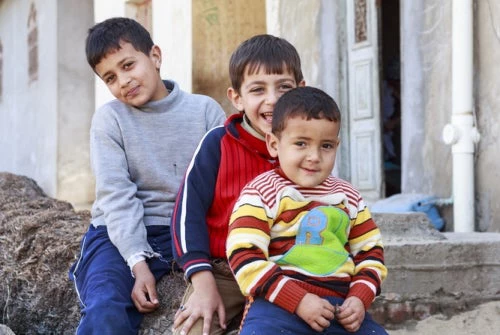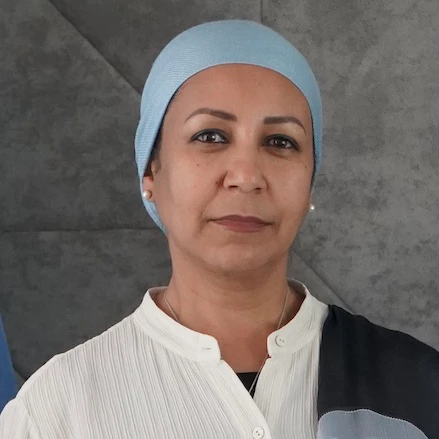 In Part II of her interview,
Safaa El Tayeb El-Kogali, World Bank Practice Manager for Education, explains the initiatives being take to improve all levels of public education in the Middle East and North Africa (MENA), and how important it is for children to be able to go to school, especially when their countries are affected by conflict:
In Part II of her interview,
Safaa El Tayeb El-Kogali, World Bank Practice Manager for Education, explains the initiatives being take to improve all levels of public education in the Middle East and North Africa (MENA), and how important it is for children to be able to go to school, especially when their countries are affected by conflict:
Q. Is the Bank doing anything for the education of refugees in MENA?
A. In Lebanon, we are working together with partners and the government to expand schooling for Syrian refugee children. This includes providing textbooks, funds for school furniture and repairs, finance for school field trips and sports equipment, and more to enrich children’s time and make learning fun. This and other support has enabled the Lebanese Ministry of Education to increase the number of Syrian refugees enrolled in public education from 14,000 in 2011 to 123,000 in the last school year.
Q. Why do you think schooling is especially important for children affected by conflict?
A. The impact of war and displacement is very hard on all those involved, especially on children as it is harder for them to process what is happening around them. Schools offer a sense of normalcy, a safe haven from the chaos and, above all, an opportunity to learn. In a research study conducted on schooling and displacement in the Darfur region of Sudan, children aged 7 to 9 said school helped them forget the horrors of war for a little while. Parents said they felt their children were in a safe place at school if something happened. For their children too, schools were a place of comfort. Children could prepare for a better future through education. Education offers hope for children and their parents.
Q. What about schools in other MENA countries?
A. We are focusing on the early years of schooling. We found children not learning the fundamentals of literacy and numeracy, which limits their learning and acquisition of skills later on. For example, a study in Egypt found that 40% of children in Grade 5 were not able to read or write. Our program, Education for Competitiveness, E4C, aims to help countries in MENA strengthen literacy and numeracy early on. And our work also focuses on helping schools become more accountable to parents, and helping parents become more engaged in their children’s schooling experience.
Q. Tell us more about the E4C program?
A. The design of E4C is based on three core principles: a regional perspective with local solutions; deeper and wider partnerships for activities and reforms; and identifying innovative and transformative interventions. As part of the design, we and the Islamic Development Bank carried out wide consultations to understand what citizens, policy makers, teachers, and students think the key challenges in education in MENA are. We then organized these issues into five areas: Expanding early childhood opportunities; strengthening early grade literacy and numeracy; promoting information for accountability; enhancing career guidance and opportunities; and boosting 21st century skills and values.
Q. What sort of opportunities?
A. The fourth area of our work focuses, for example, on student’s school-to-work transition. It aims to help with career guidance and by providing opportunities in the region. Here we are thinking of a platform for secondary and tertiary students to acquire information that can help them with information on careers. It also aims to create a regional internship program to expose them to the world of work. Given the private sector is so small in each individual country, a regional approach to internships may offer more options. Through this, we also hope to help countries boost career counseling in schools. The fifth and final area focuses on helping students in the region acquire the soft skills that are also called 21 st century skills to help them get and retain a good job.
Q. Can you tell me a bit about the university network that has been trying to improve education?
This is a network of more than 150 learning institutions from 8 countries in the region. It is known as the MENA University Governance Score Card Project, which has been conducting evaluations of institutional effectiveness and sharing best practices at national and regional level. Its most recent annual conference was devoted to develop expertise on improving the employability of graduates. The score card project allows institutions to measure progress periodically. The network is a partnership fostering the active involvement of institutions, government related agencies and relevant international organizations.


Join the Conversation